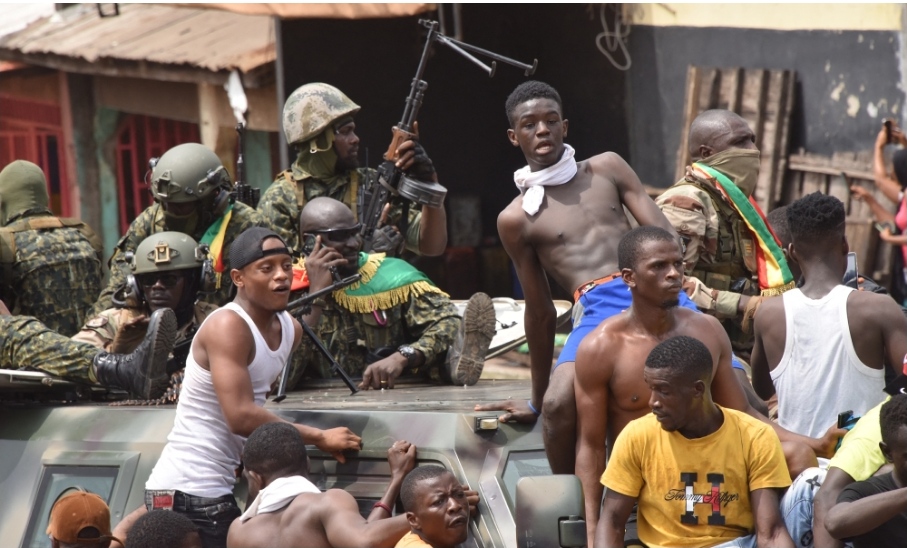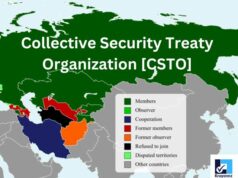Guinea Coup May Upset Chinese Mining Business In Africa

Trade between China and Africa grew 20 times from 2000 to 2019, and the total trade was worth $200 billion. Foreign direct investment grew 100 times during the period, and China’s accumulative investment in Africa was worth $110 billion, contributing 20 percent of the continent’s growth, according to a statement posted on the website of the Chinese Ministry of Foreign Affairs.
Now the coup in Guinea will test China’s ability to protect its overseas interests. As per data above, the world’s second largest economy has poured an amount of $110 billion. China has already issued a Statement that it opposes any attempt to seize power via coup and calls for the immediate release of Guinea’s President Alpha Condé.
“We call on all parties to exercise restraint, bear in mind the fundamental interests of Guinea and resolve issues through dialogue and consultation,” said the Chinese Spokesman.
The coup has closed Guinea’s airport to foreign nationals but has so far not affected shipments at several ports involved in bauxite exports. The political change in Guinea has attracted worldwide attention, as the country plays a vital role in providing industrial feed material to the World.
However China is very much dependent on Guinea as roughly 50 percent of all China’s imported bauxite comes from this country only. In 2020, China imported 52.7 million tons of bauxite from Guinea. Bauxite is the raw material for aluminum, the world’s most needed nonferrous metal used in a long list of modern products from iPhones and airplanes to cars and furniture. Guinea is also rich in iron ore. Also China is desperately trying to reduce its import of ores from Australia.
The political unrest has already resulted in market jitters. Aluminum prices have soared since the Coup with the most traded contract for October delivery rising to its highest level since July 2008. China is the world’s largest producer and consumer of aluminum. A total of 14 Chinese state-owned and private companies are involved in the aluminum businesses in Guinea.
Besides aluminum, the coup has also put iron ore under the spotlight. Guinea is home to the Simandou project, the world’s largest undeveloped iron ore deposit. The project has accumulated reserves of more than 10 billion tons of high-grade iron ore, and Chinese companies have invested heavily in the mining project.
On June 10, 2020, the SMB-Winning Consortium jointly established by Winning International Group, Yantai Port Group, Shandong Weiqiao Venture and Guinea United Mining Supply Group had officially signed an agreement with the Guinean government, acquiring the mining rights to two blocks in the north of Simandou worth $14 billion.
Since China’s Simandou iron ore project was signed with Guinea’s previous government, China’s strategic investment in Simandou iron ore may face certain risks, and the extent of these risks will be known once the new government takes full control. Many Chinese companies have been temporarily closed due to the instability in the country, and the Chinese population is remaining indoors.
Guinea has set up a transitional committee, with the former deputy head of each ministry temporarily in charge. Chinese are already apprehensive regarding several possible adverse effects that the coup could have on existing and future Chinese investment in the country.
The new government will surely seek to review the signed contracts and propose altering existing terms, including diluting the shares held by Chinese investors Or there could be higher taxes and local involvement in mining projects.
Probably this selling off of the mining resources to the Chinese may be the real reason for the Coup by Nationalists. So though the the military government has been criticized by international organizations and major countries, before imposing possible international sanctions on Guinea they need to carefully study the situation.
Anyway there will be collateral damage on Chinese enterprises’ projects, along with other potential impacts such as the solvency issue of the new government, rising security hazards and a general economic slowdown.
The coup in Guinea has raised the lingering question of how to protect China’s interests overseas and this has sent shivers down the Communist Party hierarchy. So China’s stance remains the same as that of the UN, the African Union and most countries in the international community, and they hope that necessarily it will not make the military hostile against China specifically. The Chinese think that whoever is in power, there will always be certain demands for external cooperation with other countries, because the internal drive of the Guinean economy is inadequate.
Mamady Doumbouya, the military leader who launched the coup, has connections with the US, and it is speculated that the new Government will be pro West. However Zeng Aiping, research fellow with the China Institute of International Studies, thinks that Doumbouya’s US and French training background alone does not prove that he is pro-American, nor does it say anything about his future policy inclination. However, Chinese have Already started fearing potential foreign intervention that could worsen the situation for them.
Things are not going The Chinese way in Africa. The Democratic Republic of Congo is already in the process of reviewing a $6 billion infrastructure-for-minerals deal with Chinese investors as part of a broader review of mining contracts, Reuters reported on August 28.
The problem behind this turbulence is that the COVID-19 pandemic has seriously damaged the economic development in the region and caused poverty. So the instability, conflict and poverty is likely to affect the region a hotbed for terrorism, and it will become difficult for China to protect its interests and personnel there.
It seems that if China has made some temporary gains in Afghanistan by siding with the Taliban terrorists, it is in for a big trouble in Africa.



